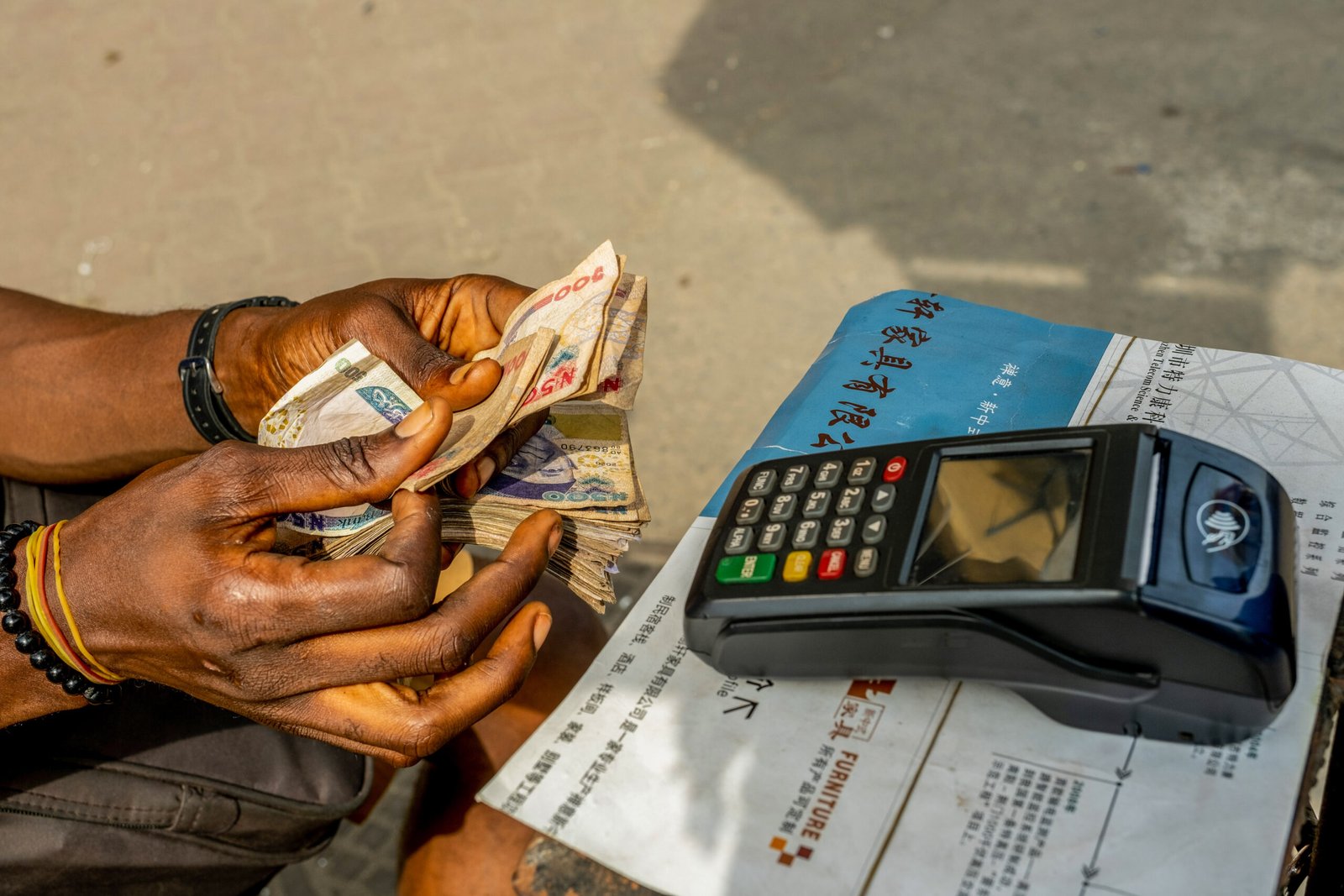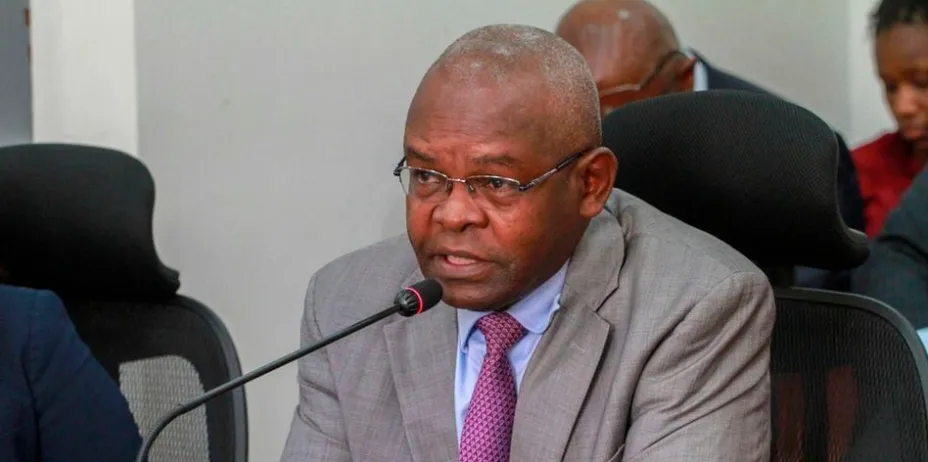In a move designed to bolster operational efficiency and curb fraudulent activities, banks across Nigeria have commenced enforcement of new withdrawal limits for Point-of-Sale (PoS) terminals. The directive, issued by the Central Bank of Nigeria (CBN) on December 17, 2024, sets daily and weekly withdrawal caps at N100,000 and N500,000, respectively.
This policy marks a significant step in the CBN’s efforts to establish uniformity across the banking system, ensure adherence to financial regulations, and promote cashless transactions. Customers are being encouraged to adopt alternative channels such as mobile banking, USSD codes, and online platforms to conduct their transactions.
Understanding the CBN’s Directive
The Central Bank’s new withdrawal limits come as part of a broader strategy to address systemic inefficiencies and enforce compliance within Nigeria’s financial sector. The withdrawal caps apply exclusively to PoS transactions, with no immediate impact on Automated Teller Machine (ATM) withdrawals, which remain governed by existing limits.
Union Bank, in its customer communication, stated:
“In line with CBN directives, please note that the daily withdrawal limit on PoS is now N100,000, while the weekly limit is fixed at N500,000. Our ATMs remain available for cash withdrawals, and we encourage the use of UnionMobile, *826#, and UnionOnline for seamless transactions.”
The CBN’s emphasis on alternative channels reflects its commitment to advancing Nigeria’s cashless economy agenda, which seeks to reduce the country’s reliance on physical cash while enhancing financial inclusion and transparency.
CBN’s Stringent Enforcement Actions
The decision to enforce these limits is not without precedent. During the 2024 festive season, the CBN conducted spot checks on nine Deposit Money Banks (DMBs) to ensure compliance with cash distribution guidelines. Findings revealed significant lapses in several institutions, prompting the CBN to impose fines of N150 million on each non-compliant bank.
These enforcement actions signal the regulator’s zero-tolerance approach toward operational inefficiencies and cash flow disruptions within the banking sector. Analysts suggest this move serves as a reminder to financial institutions about the importance of adhering to regulatory frameworks and maintaining customer trust.
Implications for Customers and Businesses
While the policy is expected to streamline banking operations, it has sparked mixed reactions among customers and small business owners who rely heavily on PoS terminals for their daily transactions. For many, the withdrawal limits represent an inconvenience, especially in rural and semi-urban areas where access to digital banking services may be limited.
Small and medium-sized enterprises (SMEs), in particular, may face challenges adapting to the new limits, as cash remains a dominant medium of exchange in Nigeria’s informal economy. Traders and service providers who process high-volume transactions via PoS terminals may need to explore alternative payment solutions to mitigate potential disruptions.
On the flip side, financial experts argue that the policy could encourage a gradual shift toward digital payment systems, fostering greater adoption of platforms such as mobile wallets, USSD services, and e-banking apps. This aligns with the CBN’s long-term vision of building a robust cashless economy that enhances transparency, reduces fraud, and minimizes the costs associated with cash handling.
Driving Financial Inclusion Through Digital Channels
The CBN has consistently championed the adoption of digital financial services as a means of driving financial inclusion across Nigeria. With over 38 million unbanked adults in the country, initiatives such as the PoS withdrawal limits are part of a broader strategy to integrate more Nigerians into the formal financial system.
Digital banking platforms, such as UnionMobile and UnionOnline, are being positioned as key enablers of this transition. These platforms offer customers the ability to perform a wide range of transactions, from fund transfers and bill payments to airtime purchases and account management.
Additionally, the rise of fintech companies in Nigeria has provided customers with an array of innovative solutions for seamless and secure digital transactions. Companies like Paystack, Flutterwave, and OPay have emerged as significant players in the payment ecosystem, offering merchant services and payment gateways that complement traditional banking channels.
Potential Impact on Fraud Prevention
The CBN’s policy also seeks to address concerns about fraudulent activities associated with PoS terminals. Over the years, the proliferation of PoS operators has raised questions about the security of transactions and the potential for exploitation by unscrupulous actors.
By capping withdrawal limits, the CBN aims to reduce the attractiveness of PoS terminals as a target for fraudsters while encouraging greater accountability among operators. Furthermore, the policy is expected to complement existing anti-fraud measures, including transaction monitoring and customer verification protocols.
Criticism and Calls for Flexibility
Despite its potential benefits, the PoS withdrawal policy has not been without criticism. Stakeholders in the informal economy have raised concerns about the practicality of the limits, arguing that they may hinder business operations and limit economic activities in cash-dependent sectors.
Experts have called on the CBN to adopt a more flexible approach by considering exceptions for certain categories of transactions or providing additional support to rural communities where digital infrastructure is lacking. They also emphasize the need for continuous public awareness campaigns to educate Nigerians about the benefits of cashless transactions and the available alternatives.
Regional and Global Context
Nigeria’s move to enforce PoS withdrawal limits mirrors similar initiatives in other countries striving to reduce cash dependency. Across Africa, nations such as Kenya and Ghana have successfully implemented policies to promote mobile money and digital banking as viable alternatives to cash transactions.
Globally, the shift toward cashless economies is gaining momentum, driven by advancements in technology and the growing popularity of contactless payments. In countries like Sweden and China, cash transactions have become increasingly rare, with digital wallets and QR code payments dominating the financial landscape.
For Nigeria, the PoS withdrawal limits represent an opportunity to position itself as a leader in financial innovation within the African continent. By leveraging its youthful population and burgeoning fintech sector, the country has the potential to accelerate its transition to a modern, inclusive, and resilient financial ecosystem.
Looking Ahead: Opportunities and Challenges
As the implementation of the PoS withdrawal policy unfolds, the CBN and financial institutions must navigate a delicate balance between regulation and customer convenience. Key priorities include ensuring adequate digital infrastructure, addressing connectivity challenges in rural areas, and fostering collaboration between banks and fintech providers.
The success of the policy will depend on the willingness of stakeholders to adapt to the changing financial landscape and embrace the opportunities presented by digital transformation. While challenges remain, the PoS withdrawal limits mark a significant step toward building a sustainable and secure banking system that meets the needs of all Nigerians.
Ready to take your career to the next level? Join our dynamic courses: ACCA, HESI A2, ATI TEAS 7 , HESI EXIT , NCLEX – RN and NCLEX – PN, Financial Literacy!🌟 Dive into a world of opportunities and empower yourself for success. Explore more at Serrari Ed and start your exciting journey today! ✨
Photo source: Google
By: Montel Kamau
Serrari Financial Analyst
27th January, 2025
Article, Financial and News Disclaimer
The Value of a Financial Advisor
While this article offers valuable insights, it is essential to recognize that personal finance can be highly complex and unique to each individual. A financial advisor provides professional expertise and personalized guidance to help you make well-informed decisions tailored to your specific circumstances and goals.
Beyond offering knowledge, a financial advisor serves as a trusted partner to help you stay disciplined, avoid common pitfalls, and remain focused on your long-term objectives. Their perspective and experience can complement your own efforts, enhancing your financial well-being and ensuring a more confident approach to managing your finances.
Disclaimer: This article is for informational purposes only and does not constitute financial advice. Readers are encouraged to consult a licensed financial advisor to obtain guidance specific to their financial situation.
Article and News Disclaimer
The information provided on www.serrarigroup.com is for general informational purposes only. While we strive to keep the information up to date and accurate, we make no representations or warranties of any kind, express or implied, about the completeness, accuracy, reliability, suitability, or availability with respect to the website or the information, products, services, or related graphics contained on the website for any purpose. Any reliance you place on such information is therefore strictly at your own risk.
www.serrarigroup.com is not responsible for any errors or omissions, or for the results obtained from the use of this information. All information on the website is provided on an as-is basis, with no guarantee of completeness, accuracy, timeliness, or of the results obtained from the use of this information, and without warranty of any kind, express or implied, including but not limited to warranties of performance, merchantability, and fitness for a particular purpose.
In no event will www.serrarigroup.com be liable to you or anyone else for any decision made or action taken in reliance on the information provided on the website or for any consequential, special, or similar damages, even if advised of the possibility of such damages.
The articles, news, and information presented on www.serrarigroup.com reflect the opinions of the respective authors and contributors and do not necessarily represent the views of the website or its management. Any views or opinions expressed are solely those of the individual authors and do not represent the website's views or opinions as a whole.
The content on www.serrarigroup.com may include links to external websites, which are provided for convenience and informational purposes only. We have no control over the nature, content, and availability of those sites. The inclusion of any links does not necessarily imply a recommendation or endorsement of the views expressed within them.
Every effort is made to keep the website up and running smoothly. However, www.serrarigroup.com takes no responsibility for, and will not be liable for, the website being temporarily unavailable due to technical issues beyond our control.
Please note that laws, regulations, and information can change rapidly, and we advise you to conduct further research and seek professional advice when necessary.
By using www.serrarigroup.com, you agree to this disclaimer and its terms. If you do not agree with this disclaimer, please do not use the website.
www.serrarigroup.com, reserves the right to update, modify, or remove any part of this disclaimer without prior notice. It is your responsibility to review this disclaimer periodically for changes.
Serrari Group 2025
















